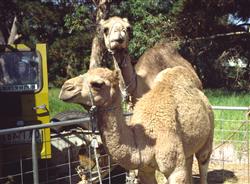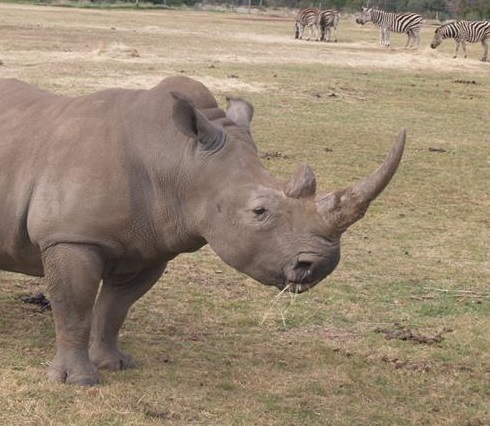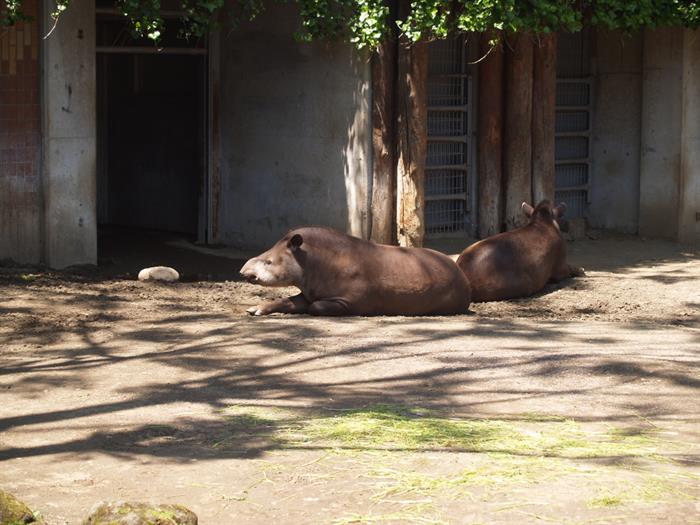Learn to Manage Animals in Captivity
This course will provide you with flexible learning experiences that will help start you on your way to a career in zoos.
To help you with your career, we strongly recommend that you try to get as much relevant work experience as possible while you are studying. This will not only make you more employable, but increase your confidence with animals and provide you with a network of contacts within the industry.
 Core Modules:
Core Modules:
- Animal Health Care VAG100
- Animal Behaviour BAG203
- Zoo Keeping BEN208
Elective Modules:
- Animal Anatomy and Physiology
- Vertebrate Zoology
- Ornithology
- Marine Studies I
- Aquarium Management
- Animal Feed and Nutrition
- Diagnosing Animal Diseases
- Animal Breeding
- Wildlife Conservation
- Wildlife Management
- Natural Health Care for Animals
- Ecotourism Tour Guide
- Primates
- Herpetology
What Do the Core Modules Cover
Animal Health Care
There are twelve lessons as follows:
- Introduction to Animal Health Care
- Common Health Problems in farm animals and pets
- Animal Behaviour
- Signs of Ill Health
- Veterinary Facilities
- Safety Procedures
- Administration of Animal Health
- Animal First Aid
- Preventative Health Care
- Routine Health Treatments
- Health Problems in Domestic Pets
- Rehabilitation Care

Animal Behaviour
This course has eight lessons:
-
Introduction: Influences and motivation.
- Genetics and Behaviour.
- Animal Perception and Behaviour.
- Behaviour and the Environment.
- Social Behaviour.
- Instinct and Learning.
- Handling Animals.
- Behavioural Problems.
Zookeeping
There are eight lessons as follows:
- The Nature and Scope of Zoos
- Occupational Health and Safety in Zoos
- Captive Husbandry - Health Husbandry - Nutrition and Feeding
- Captive Husbandry - Reproduction
- Captive Husbandry - Behaviour and Enrichment
- Human-Animal Interactions
- Enclosure Design and Maintenance
- Problem-based Learning Project - Environmental Enrichment

What is Abnormal Behaviour in a Zoo Animal?
The term zoochosis was first coined by Bill Travers, the actor, and eventually animal rights activist; famous for starring in Born Free. It is used to describe repetitive and apparently obsessive behaviour in zoo animals, or animals in artificial environments with little stimulation. It can result in a range of abnormal behaviours, such as –
 Tongue playing – where the animal continually licks bars, gates or the wall. Often seen in giraffes and camels.
Tongue playing – where the animal continually licks bars, gates or the wall. Often seen in giraffes and camels.- Bar biting – repeated biting or rubbing of their mouth around the bars of an enclosure until it damages their mouth and teeth. This is often seen in bears.
- Neck twisting – where the animal unnatural twists and rolls their neck. Often seen in monkeys, llamas and giraffes.
- Pacing – where the animal walks back and forth along the same path. Often seen in big cats such as lions.
- Circling – is another form of pacing, where the animal places their feet in exactly the same position each time. This is often seen in bears and elephants.
- Vomiting – where an animal will repeatedly vomit, then eat the vomit. This is often seen in chimpanzees and gorillas.
- Coprophagia – which we have already discussed and is often seen in captive gorillas and chimpanzees.
- Rocking – where the animal rocks backwards and forwards over and over. This is a recognised symptom in human mental illness and can be displayed in some animals, such as chimpanzees.
- Swaying is another behaviour also seen in humans with mental illness and can be seen in elephants and bears.
- Over grooming is another behaviour we have discussed already where the animal will groom themselves to such an extent that they leave bald patches where there is no fur or feathers, ulcers and broken skin.
- Self-injury and self-mutilation are another demonstration of zoochosis, where the animal will inflict physical harm on themselves, such as biting or chewing their tail or leg, hitting their head against a wall, etc.
A good Zookeeper will understand such abnormal behaviour, and a great deal more about what a physically and mentally healthy animal needs in order to have a sustainably acceptable state of well being. Study this course and build your foundation for becoming that type of zookeeper.
Getting Started
Staff at zoos and wildlife parks need to do lots of different jobs. Their primary role may be to maintain the health and welfare of the animals, but in smaller parks and zoos, in particular; all staff may at times need to help out with whatever is needed to keep the park functioning.
Primary tasks can include ensuring the animals are well fed and have everything they need to be comfortable. This may also involve cleaning animal enclosures daily.
Another role of zoo keepers is to communicate with visitors; as keepers will often be the first point of contact. They may even have to guide tour groups, and give presentations or demonstrations to the public; or help with conservation and research projects.
These jobs can provides the opportunity to work with a wide range of animals anywhere in the world; not only in zoos, but also wildlife reserves, aquariums and animal centres
Working with animals can have an element of risk and it is very important to always adhere to the zoos health and safety guidelines. Challenges include offering the animals a stimulating environment and being able to run successful breeding programmes to help with the conservation of the species.
It can be difficult to get this type of job if you are relying on studies alone; and also difficult to advance a career without some formal study. If you want the best chance for a successful and sustainable career as a zoo keeper; you should work on getting experience (even volunteer work) and studying -both at the same time.
Getting voluntary work experience at any animal organisation can help, even a kennel, animal rescue organisation, farm or animal sanctuary. This then looks very good on your CV – giving you experience but also showing that you are dedicated to working with animals.

Course Duration:
600 hours of self paced study for the average student.
Commonly a student would take between 1 and 2 years to complete the course, but it is quite feasible to complete it much faster or extend it over a longer period if you wish.
HOW DOES STUDY GET YOU WORK?
Although doing a course may not guarantee you work – it will set you apart from those that have not studied at all and it will improve your personal choices when applying for jobs. Each job listed though usually gets a huge amount of response, when employers choose people to interview they will look at a range of factors, what you have studied will be just one of those factors. You need to be able to catch a potential employer’s attention and stand out from the rest.
So what do you need?
- Great communication skills: verbal, written and also the ability to use a computer. Whenever we are offering people a service (such as personal training for example) they are looking for someone with a professional approach and who instils a feeling of confidence.
- Problem solving skills: no matter what profession you work in you need to be able to problem solve – in personal training this is important so that you can construct programs to suit each individual. ACS courses are based on developing problem solving skills and you do this through your set tasks and assignments throughout the course.
- Knowledge and skills demanded of the job. In any job that involves people’s health and fitness you must know what you are doing – this is something you cannot do without the correct skills and knowledge and the only way to get this is by undertaking a course and gaining personal experience.
- A passion for the work and willingness to learn.
- Presentation and grooming - people who present as being well organised and well-groomed will impress.
How Will A Course Help Me To Gain those Skills?
Choosing the right course will help i.e. one that develops knowledge, practical and also your problem solving skills. Not all courses do this. At ACS our courses focus on Problem Based Learning so this enables the student to develop these skills and at the same time using this learning method also improves you knowledge retention and recall.
What Can You do to Improve Your Career Prospects?
- Choose a course that you are passionate about – be open to learning and use this course to start building your future. Today we are expected to keep learning and studying in order to keep up with a world that is rapidly changing. Learning is a lifelong experience. Study a course that makes you stand out - a qualification that is different to all the other applicants will always catch the attention of a boss, and may be the difference between getting an interview or not.
- Network with people in the industry, attend conferences and trade shows – make yourself known to people in the industry in general.
- Try to build a range of skills – multi-skilled people catch the eye of the employer or potential employer.
- Write a good CV and ask for help if you need it. Tutors at this school will help our students with their C.V.'s if you ask -no cost. Resume Writing services can also be used, but they charge.
- Recognise your weaknesses and work on improving them - not just academically. And also know your strengths and demonstrate them.